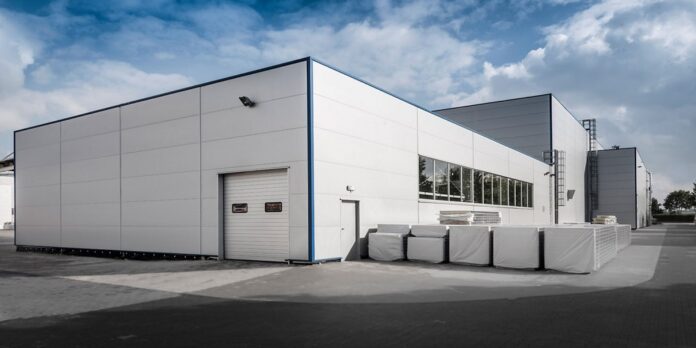Sandwich panels also known as insulated panels—are used in a variety of applications from construction to cold storage. One of the most important factors when considering sandwich panels is thickness, which has a big impact on the performance, durability, and cost of the panel.
In this article, we will break down why thickness matters and explain what different measurement means!
What is “Thickness”?
When referring to sandwich panels, thickness is defined as the total length of all layers combined. This includes both the exterior and interior parts of the panel. Typically, this is measured in millimeters (mm). The thicker the panel, the more insulation it offers and thus provides better thermal and acoustic protection for whatever purpose it’s being used for.
Different Thickness Ratios in Sandwich Panels
25mm Panels
At 25mm thick, these panels are most commonly used for lightweight applications such as caravans, trailers, or horseboxes. They are also quite popular for roofing in residential buildings.
Because they offer relatively low insulation capabilities compared to other thicknesses, these panels are often not recommended for commercial uses such as warehouses or industrial environments where temperature control is necessary.
30mm Panels
These panels are slightly thicker than 25mm panels but still provide relatively low insulating properties. Due to their increased strength over 25mm panels they can be used in many different applications including exterior walls in residential buildings or interior walls in commercial buildings like offices or retail stores.
However, they may not be ideal for warehouses or industrial areas where there is a need for greater insulation capabilities due to their limited insulation properties at 30mm thick.
50mm Panels
50mm sandwich panel offer greater insulation than thinner models but still maintain decent strength levels with good rigidity properties making them suitable for a range of applications including floorings and wall claddings in commercial buildings like offices or retail stores as well as exterior walls in residential homes.
They are also becoming increasingly popular options for roofing projects due to their excellent thermal insulation capabilities despite having a lower price tag than 100mm thick options.
100mm Panels
100mm thick sandwich panels offer superior thermal insulation compared to other thicknesses making them ideal for any application requiring high levels of temperature control such as cold storage facilities or warehouses that need extra protection from outside temperatures fluctuations.
These panels also provide excellent acoustic protection which makes them an ideal choice for any project that requires soundproofing such as music studios or recording booths. Furthermore, they have superior rigidity and strength compared to thinner models meaning they can be used safely on heavier-duty projects without sacrificing quality or safety standards.
Wrap Up!
As you can see from this guide, there is no “one size fits all” when it comes to choosing your sandwich panel thickness; instead, you must assess your needs carefully before deciding on the best option for you.
25mm and 30mm options offer lightweight solutions with lower costs while 50 mm and 100 mm options provide higher levels of thermal & acoustic protection with greater strength & rigidity – perfect if you need something more heavy-duty.
Ultimately, it’s up to you but hopefully this guide has helped shed some light on why certain thicknesses may be better suited than others depending on your specific needs!











